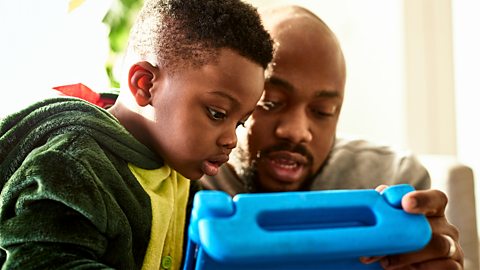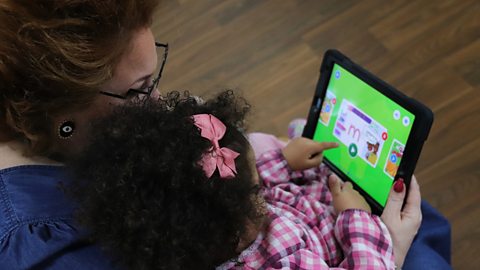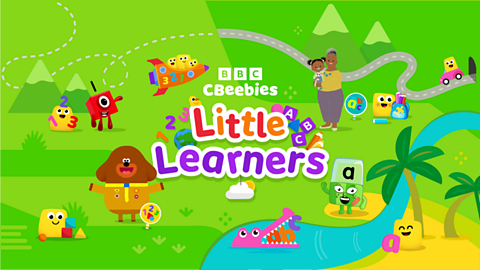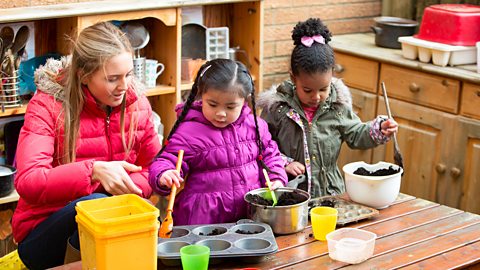From learning new words to building relationships with grandparents, there can be benefits to your child’s screen time.
TVs, phones and tablets are part of all our lives, including our children’s. And while, as parents, we spend a lot of time worrying and feeling guilty about how much screen time our child has, used in the right way your devices can provide opportunities for learning.
Speech and language therapist Alys Mathers says, “Screen time remains a hot topic! Rather than thinking of all screen time as bad, it's more helpful to think about what is on the screen, and how much interaction the child has with you while watching. Making screen time a shared experience, watching something together and then talking about it, helps your child get the most out of learning from what they've just seen."

How much is too much screen time?
There’s no official limit on how much screen time is too much. shows preschoolers spend over 6 hours a week online. It’s all about finding the right screen time balance that works for you and your child.
‚ÄúRecent evidence and research suggests we should be thinking about the quality of screen time rather than just the quantity‚ÄĚ, says Alys. ‚ÄúThat means making sure what your child is watching or doing is at the right level for them, using sentences and vocabulary at the level they can understand and use, or a small step up - not too 'young' or 'old' for them".
6 tips for using screens in a positive way
Try these top tips for helping your child get the most out of their time on screens.
1. Let your child take photos
Using a device doesn‚Äôt just mean watching a programme or using an app. You or your child can use your phone to take photos of what they‚Äôre doing. They‚Äôll love being a mini photographer or being the star. ‚ÄúLooking back at photos of their day is a fun way to remember and talk about experiences‚ÄĚ, says Alys. ‚ÄúBeing asked, ‚ÄėWhat did you do today?‚Äô, is really hard for children. They have to try and remember what they did, what was important and find the words for it. Having a photo of their activity makes it so much easier to share what they did with someone who wasn‚Äôt there.‚ÄĚ
2. Use screens together
Make screen time something you do with your child is key. ‚ÄúStay with your child when they‚Äôre on a device‚ÄĚ, says Alys. ‚ÄúIt‚Äôs not about sitting next to each other with you on your phone too. Join in and watch or play together. Talk about what is on the screen. If they‚Äôre watching a TV programme like Topsy and Tim for example, you can talk about what they‚Äôre doing - going camping or going to the zoo. It‚Äôs a great way of learning about situations your child might go on to experience themselves, and talking about what it‚Äôs like. After you‚Äôve watched, you could also act it out together.‚ÄĚ
3. Watch the right content
Make sure the app, game or programme is suitable for your little one. ‚ÄúIt‚Äôs important that the content your child watches is at the right level so they understand it and aren‚Äôt just passively watching it‚ÄĚ, says Alys. ‚ÄúThey need to understand the language and what is going on but you also want it to stretch them a bit. Watching a programme or playing a game can be a way of introducing new words they might not know yet, with your help to then reinforce the learning.‚ÄĚ

4. Play games on the CBeebies Little Learners app
There are loads of educational games your child can play to help them learn words and numbers.
The CBeebies Little Learners app has games based around early learning skills, including maths, literacy and communication, with familiar faces like Hey Duggee and JoJo & Gran Gran. It's free, there are no adverts and no in-app purchases and downloaded games can be played offline and on-the-go wherever you are.
Alys has some advice to help you make the most of educational games, ‚ÄúMake sure it‚Äôs child-led and interactive‚ÄĚ
‚ÄúThis doesn‚Äôt just mean your child interacting with what‚Äôs on screen, you can join in too! For slightly older children, see if they can tell you how to play the game. Talk about what they like about the game and use it as a jumping off point for conversation.‚ÄĚ
Download the CBeebies Little Learners app. game
Discover fun games and educational videos which will help children get ready for starting school

5. Press pause
Children need repetition to help them learn, says Alys. You can help them with this on their device. ‚ÄúYou can pause what they‚Äôre watching to help them take it all in‚ÄĚ, she adds. ‚ÄúThis is helpful if they‚Äôre watching a song with lots of actions and gives them time to join in. Make sure you‚Äôre singing the song and doing the actions with them! You could sing together while the song is on pause at a slightly slower pace.‚ÄĚ You can also rewind for them. ‚ÄúSome children might need to see it again to process the information, and they like to know what is coming next.‚ÄĚ
6. Make video calls
A really fun activity is making video calls to family members. ‚ÄúThis has so many benefits‚ÄĚ, says Alys. ‚ÄúFor children who are too young to have a phone conversation, video calls mean they can still play with friends and family who don‚Äôt live nearby. The grandparent can introduce activities like treasure hunts, asking your child to get them something green or something furry. Your child can run off, get the item and bring it back. It's also a nice way of keeping social relationships. Talking on the phone is abstract and children don‚Äôt always associate that with talking to granny or grandpa. If they can actually show them their teddy or picture from nursery, and see their faces, it can help everyone join in with the catch-up.‚ÄĚ

Internet Matters, an organisation working to keep children safe online, suggests looking out for This could include them struggling to sleep or being stressed when they don’t have the tablet or phone.






